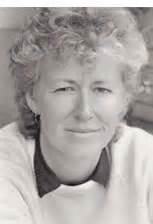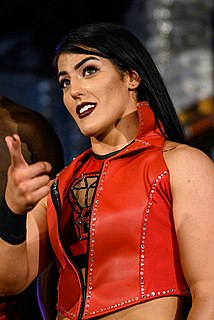A Quote by Jandy Nelson
I do find the sibling connection endlessly fascinating, as I do all family dynamics. I like how siblings seem to create their own parentless mini-civilization within a family, one that has its own laws, myths, language, humor, its own loyalties and treacheries.
Related Quotes
We come from fallible parents who were kids once, who decided to have kids and who had to learn how to be parents. Faults are made and damage is done, whether it's conscious or not. Everyone's got their own 'stuff,' their own issues, and their own anger at Mom and Dad. That is what family is. Family is almost naturally dysfunctional.
And if you can find out something about the laws of your own growth and vision as well as those of photography you may be able to relate the two, create an object that has a life of its own, which transcends craftsmanship. That is a long road, and because it must be your own road nobody can teach it to you or find it for you. There are no shortcuts, no rules.
The role you've been ascribed in childhood can twist or break apart or seem outgrown, especially when you have your own family and begin to see your own childhood from a different angle. You remember. You reassess. I think that was the kernel of the novel for me. This idea that you change but that your family, the people you were born into, might find that change hard to accept. You no longer fit the mold you've always been ascribed. When the adult children in the book converge back on their small family home there's a sense that they don't fit there anymore.
My Family and Other Saints echoes Gerald Durrell's classic memoir, My Family and Other Animals, not only in its title, but in its wonderful humor and lyrical prose. Like Durrell, Kirin Narayan takes the reader to a fascinating world far from our own, and brings to life its myriad sights, sounds and smells, while revealing the profound cultural beliefs of its people. India is just the most complex character among a cast of characters-family members, gurus, hippies, and neighbors-all of whom I now count as old friends.
What you of the CHOAM directorate seem unable to understand is that you seldom find real loyalties in commerce. ... Men must want to do things of their own innermost drives. People, not commercial organizations or chains of command, are what make great civilizations work. Every civilization depends upon the quality of the individuals it produces. If you over-organize humans, over-legalize them, suppress their urge to greatness - they cannot work and their civilization collapses.
Make your own worlds. Make your own laws. Make your own creations, your own star systems. Don't feel answerable to anyone, or as though you have to create after some preordained model. You don't have to write like myself, or King or Anne Rice: be yourself. Nothing is more wonderful than discovering a new voice, particularly if it happens to be your own.
The key to your happiness is to own your slippers, own who you are, own how you look, own your family, own the talents you have, and own the ones you don't. If you keep saying your slippers aren't yours, then you'll die searching, you'll die bitter, always feeling you were promised more. Not only our actions, but also our omissions, become our destiny.






































